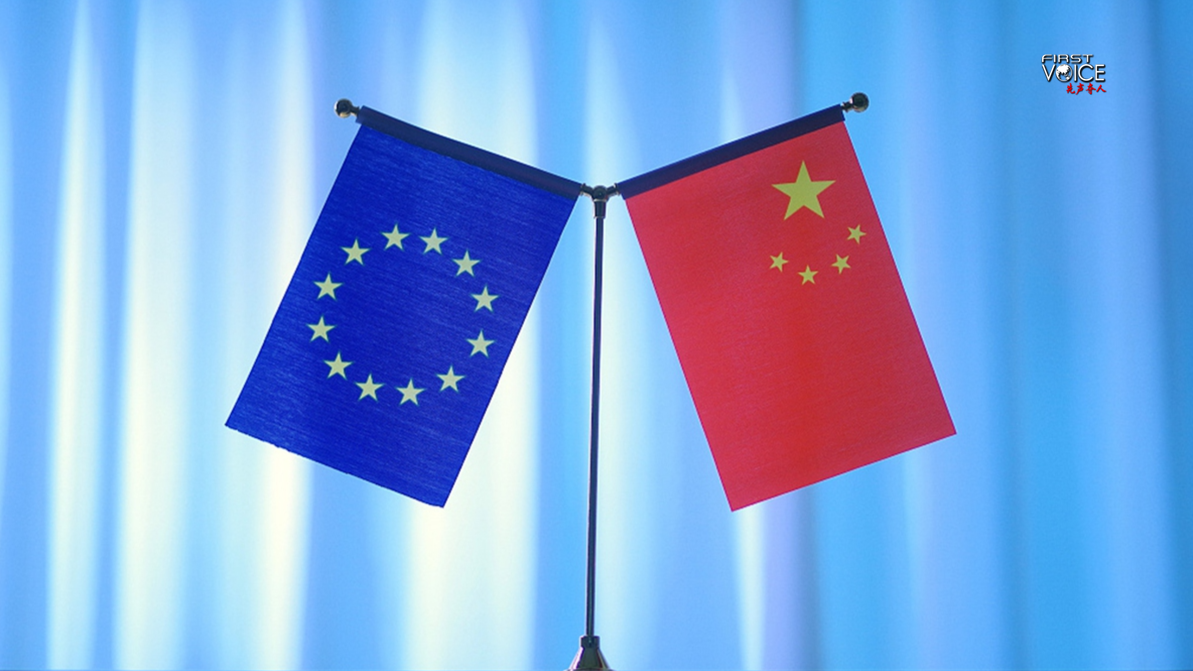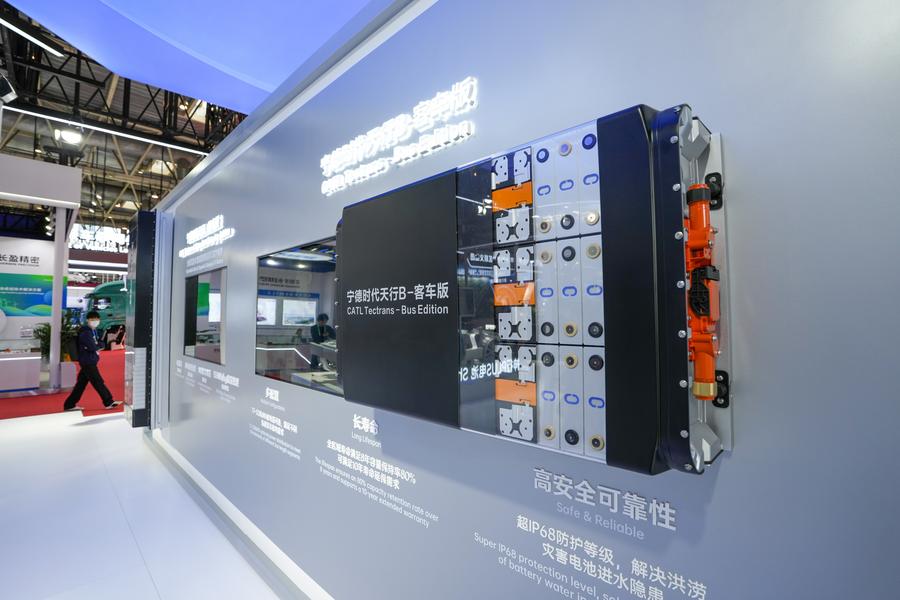
Editor's note: CGTN's First Voice provides instant commentary on breaking stories. The column clarifies emerging issues and better defines the news agenda, offering a Chinese perspective on the latest global events.
As the EU-China summit looms, the European Commission leveled sharp criticisms at China, accusing it of "distorting" trade, "flooding" global markets, and "creating heightened instability and insecurity" on the Ukraine crisis.
These remarks reflect a one-sided narrative that fails to acknowledge the complexities of global trade, supply chains, and international diplomacy.
To begin with, the current state of China-EU trade reflects the combined influence of the macroeconomic environment, international trade conditions, and the industrial structure of the two parties. True, China is running a trade surplus with the EU. But this cannot be simply attributed to one side.
China, on several occasions, has expressed its willingness to expand imports of high-quality and market-oriented products from Europe. But the EU, on the contrary, insists on setting barriers against Chinese firms in major public procurement tenders, including medical devices. Despite Beijing's sincerity in bilateral talks, the EU is persistent in erecting new barricades that severely distort fair competition.
The European Commission also stressed the priority to "speed up with de-risking." Undeniably, some Chinese products are dominant in global markets. This is determined by the laws of the market economy.
The competitiveness of Chinese products is a result of long-term investment and innovation, not "excessive state subsidies" as some Western politicians have hyped. In 2024, China's research and development (R&D) expenditure reached 3.6 trillion yuan (502 billion U.S. dollars), according to official figures. The country moved up to the 11th position in the Global Innovation Index rankings, making it one of the fastest climbers in the past decade.
Technological innovation means Chinese companies are capable of manufacturing higher-quality products for less money. This explains the price advantage of "Made-in-China" products.
Take China's battery technology as an example. The country's manufacturing giant CATL recently announced technological breakthroughs enabling the mass-production of batteries that are cheaper, lighter, faster to recharge, and more resistant to cold. This makes CATL more competitive in price, and thus more popular in the global markets.

Battery products at the booth of CATL at the second China International Supply Chain Expo in Beijing, China, November 28, 2024. /Xinhua
In addition, China's advantages in infrastructure mean most components of Chinese products can be domestically made and assembled, thus tremendously reducing their production costs. Accusing China of "subsidized overcapacity," Western politicians are shirking responsibilities for their failure in reviving domestic manufacturing and attempting to kick rivals out from their markets that are supposed to be open and free.
The European Commission's assertion that China is "de-facto enabling" Russia's war economy distorts China's diplomatic stance on the Ukraine crisis. The Chinese government has consistently advocated for peace, dialogue, and a political resolution, adhering to principles of sovereignty and non-interference. China's economic relations with Russia are lawful and consistent with global trade norms, and many countries, including some EU members, maintain similar ties.
"China's position on the Ukraine crisis has been open and consistent, insisting on peace talks, not providing lethal weapons to the parties in the conflict, and controlling the export of (civilian/military) dual-use items, including drones strictly," Chinese Foreign Minister Wang Yi, also a member of the Political Bureau of the Communist Party of China Central Committee, clarified earlier.
From the day after the crisis broke out, China has actively participated in diplomatic mediation, maintaining communication with all relevant parties including Russia and Ukraine, and getting deeply involved in discussion on the issue within the UN Security Council framework. Accusing China of complicity in the region ignores these efforts and risks undermining the international cooperation needed to resolve this crisis.
Western anti-China criticisms reflect a narrow viewpoint that overlooks the country's positive contributions to global trade and peace efforts.
Instead of "rebalancing" the economic relationship with China as some Western politicians tout, the EU needs to recalibrate its mentality. The challenges facing the world today require cooperation, not confrontation. A positive and pragmatic policy on China is what is needed at the moment.
(If you want to contribute and have specific expertise, please contact us at opinions@cgtn.com. Follow @thouse_opinions?on Twitter to discover the latest commentaries in the CGTN Opinion Section.)
阅读原文:https://news.cgtn.com/news/2025-07-10/EU-s-anti-China-remarks-an-attempt-to-shirk-duty-for-its-own-failure-1EToFZdrlq8/p.html